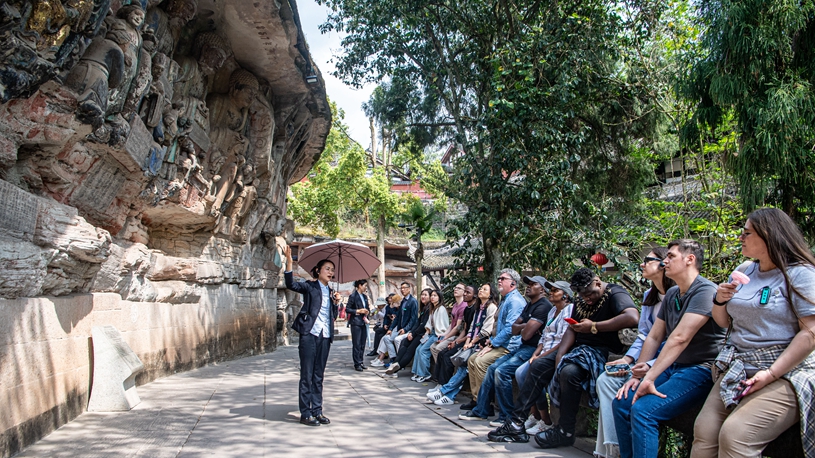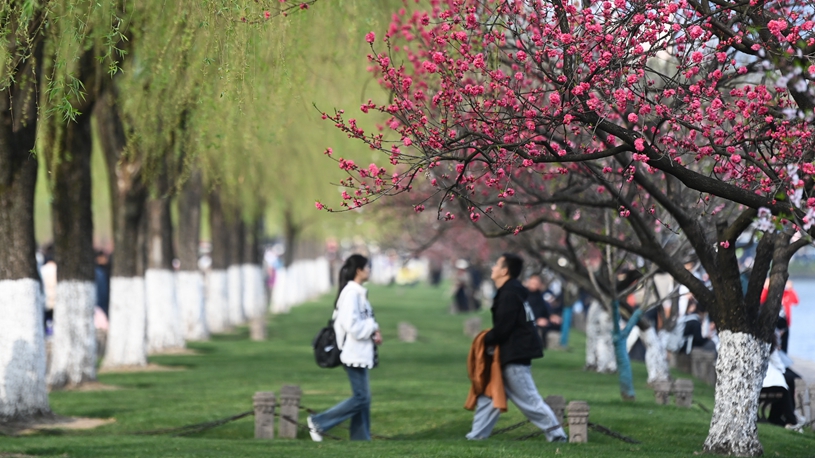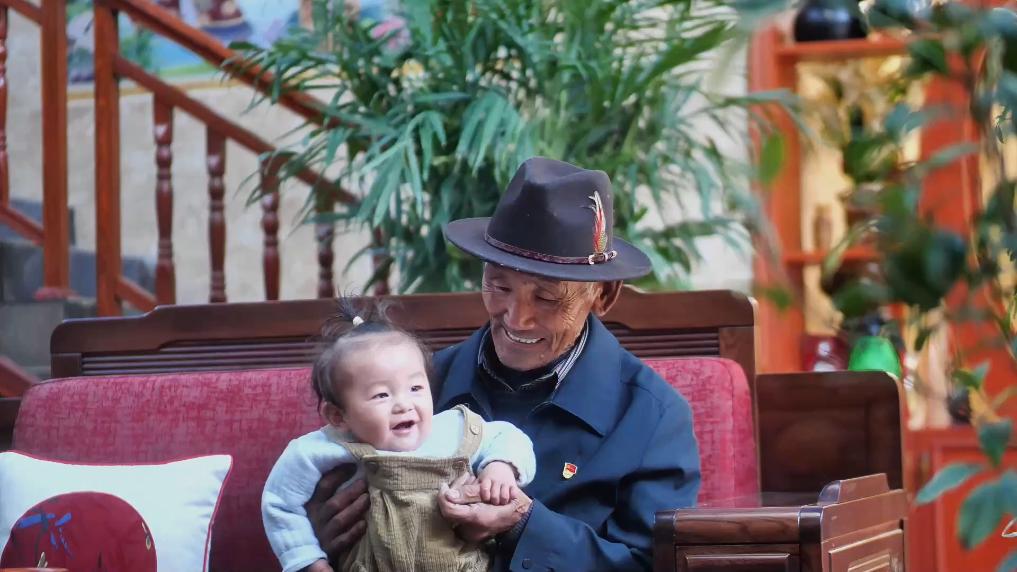LHASA, March 30 (Xinhua) -- Born in 1944, Drakpa Wangden lives now in Doilungdeqen District of Lhasa, southwest China's Xizang Autonomous Region.
Before the democratic reform, Drakpa Wangden and his family were serfs, working on manors affiliated with two monasteries in present-day Lhasa. For his family, each spring meant borrowing seeds from their masters, however, they could collect nothing during the autumn harvest.
At that time, the sustenance of Drakpa Wangden's family of nine was a meager bowl of tsampa, a traditional Tibetan staple made from barley flour, no larger than the palm of a child's hand.
In March 1959, people in Xizang launched a democratic reform that ended the region's feudal serfdom and Drakpa Wangden's family was freed along with about a million serfs.
Under the systems of the people's congresses and regional ethnic autonomy that were put in place after the reform, former serfs and slaves were given land, livestock and homes, empowering them as masters of their destinies.
Drakpa Wangden learned agricultural knowledge through training and the trial planting of wheat and rapeseed he carried out in 1997 was a great success.
Drakpa Wangden's children have received a better education and grown up now. The 80-year-old man enjoys his twilight years at his spacious new house as well.











